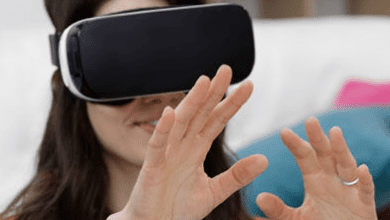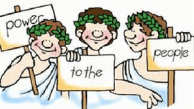Disruptive citizenshipThemesHighlights
A new public arena: How #disruptivecitizenship changes public leadership
The public opinion is now for the first time in history by, from and of the public itself

Recently I had several lectures about my new book for an audience of executives and their heads of Communication or Public Relations. Of course they were the most interested in my analysis of how the public domain, the public debate and the necessary public leadership, including political leadership, is changing as an effect of #disruptivecitizenship.
Swarmbehaviour like ‘gilets jaunes’ impossible without the new technologies
The basic analysis of my book explains how the same digital technologies that cause disruption in markets are also giving citizens more power, leading to my concept of ‘disruptive citizenship’. People now have instant access to data, information and knowledge, to make up and communicate their own (public) opinion and to share these with each other. These technologies also give them the tools to organize themselves in large groups within seconds, what I call their swarmbehavior. Good example of these new tools and power are the disruptive movements of the ‘gilets jaunes’ on the streets of France. Without these new technologies it would have been impossible to initiate, organize and execute the collective intention and agreement ‘to be in the centre of Paris tomorrow’ with 20.000 or more people, as they did! The most basic frustration for the state of France and its political leaders, like president Macron, is then of course that a ‘swarm’ doesn’t need to have an executive committee or a formal leadership or whatever topstructure you can imagine, to negotiate with state-leaders about the ‘message’ behind this ‘uproar’, ‘unrest’ or ‘massprotest’.
“It’s not technology, stupid, it is mentality!”
In these lectures I talk about the main conclusions in my extensive strategic analysis of the impact of this #digitalcivilrevolution on the public and political domains:
- the public opinion is now really of and communicated by the public itself
- there is a permanent public tribune that follows and publicly comments everything they seem fit to watch and share
- there is a fundamentally different medialandscape in which this third channel of and by the people themselves is winning the competition with the older other two: television/radio and press. In the end the last ones both will follow and report about the issues and statements on this third channel and so increase its influence. We now already can see that this way the political debate and parliamentary agendas will and must also follow this increasingly powerful third channel
- so this new third channel of the people and by the people will be dominant on agendasetting, signalling of misdeeds, public opinion building and the public support of some opinions or public debates. This will lead to a permanent referendum on everything political, including the quality and performance of political leaders.
This increasingly will show and prove the motto under which I wrote this book: ‘It’s not technology, stupid, it is mentality’!
The only leadership in this public arena is personal
Most democratic politicians used to say they were ‘listening to the people’ and they acknowledged that all citizens have ‘opinions about politics and political debate’. They now for the first time in history meet these citizens directly, they talk back directly and openly and venture and share their opinions publicly! For most professional politicians that I know this is very new, sometimes even awkward and a totally new challenge in their behavior and public rhetorics!
On this new public tribune it no longer helps to claim your authority just on your formal position, neither as a political leader nor as an executive. It proves the current theory about leadership that it is personal, not a position, and that followers define if you’re to be called a leader. You need to have an immediate, personally motivated, transparant and convincing story about your decisions and actions, when they are under this public comment or else you will further lose your authority. I call this only possible answer ‘civil leadership’, or ‘leadership from one of us, citizens’. Let’s hope, and that was the main reason I wrote this book, that everybody with a public role and responsibilities will now learn fast how to cope genuinly and wisely with the necessary leadership in this new public arena.



